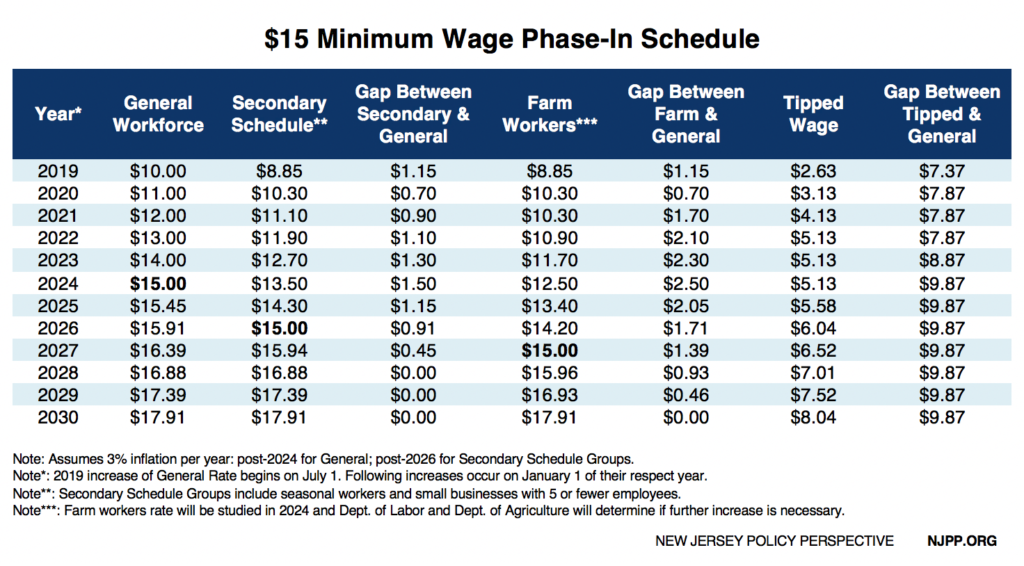More than 1 in 9 workers across the state will see a modest increase in their take-home pay on January 1, 2020, when the minimum wage increases to $11 an hour. This increase will boost the economic security of over 460,000 workers and represents the second phase of a six-step increase to the $15 minimum wage approved by state lawmakers in 2019.
Of these 460,000 workers, they are mostly adults, workers of color, women, and many are parents.[1]

Local businesses also benefit as minimum wage workers’ spending power increase by $480 million in 2020.[2] When consumer spending increases, so can the demand for goods and services, keeping money circulating in the economy and furthering a virtuous cycle that benefits workers, local businesses, and communities.
While all minimum wage workers will see an increase in 2020, not all wage increases will be the same nor will all minimum wage workers be entitled to a $15 minimum wage by 2024:
- Tipped workers’ wages will go up slightly from $2.63 to $3.13 on January 1, 2020, and only to $5.13 by 2022.[3]
- Minimum wage workers who are seasonal or who work at small businesses (with fewer than six employees)[4] will also see an increase from $8.85 to $10.30 in 2020. However, they will not reach $15 until 2026.[5]
- Farmworkers’ wages will increase from $8.85 to $10.30 in 2020 and will reach $15 in 2027.[6]
Once fully phased-in, the minimum wage will increase every year to inflation. With the exception of tipped workers, seasonal, farm, and workers at small businesses will reach the full-minimum wage by 2030.
For more information on the phase-in schedule of New Jersey’s $15 minimum wage, see our previous blog here.

End Notes
[1] Economic Policy Institute Minimum Wage Simulation Model using data from the Census Bureau, Bureau of Labor Statistics, and Congressional Budget Office. See EPI Minimum Wage Simulation Model 2019. Dollar values adjusted by projections for CPI-U in CBO August 2019 projections. https://www.epi.org/publication/minimum-wage-simulation-model-technical-methodology/
[2] Ibid. 1.
[3] State of New Jersey. Department of Labor and Workforce Development. “New Jersey’s Minimum Wage.” nj.gov/labor/forms_pdfs/wagehour/minimumwage_postcard.pdf
[4] Businesses with less than six employees.
[5] Ibid. 3.
[6] Ibid. 3. Please note that no later than March 31, 2024, the Commissioner of Labor and Workforce Development and Secretary of Agriculture will review the minimum wage’s impact on farm employers and on the State’s agricultural industry. Through this, they will be able to suggest whether to continue or pause the minimum wage increases for farmworkers. Subsequently, the legislature would decide whether they want to take legislative action on suspending the remaining increases.

